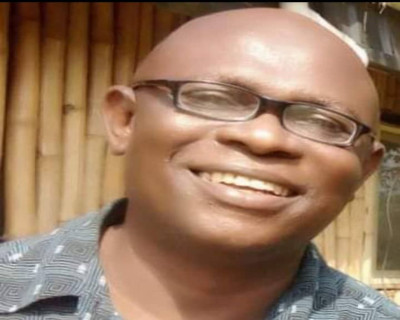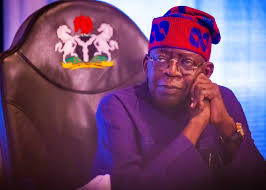By cc Oseloka H. Obaze
Well before the 25 February date arrived, it was predicted that the 2023 general elections will be another milestone in Nigeria’s political journey: if effected with transparency and fairness, it will launch Nigeria on the path of democratic consolidation, and if poorly managed; degrade the democratic process further.
Beyond imponderables, the fervour with which the 2023 campaigns were conducted had never been experienced in Nigeria. The emergence of a credible third party, the Labour Party (LP) which was implicitly a Movement was least expected. LP was a revolutionary outlier; anti-norm and anti-old order. Its impetus derived from the authentic national desire for change anchored by the Obidient Movement bulwark.
As legendary Chinua Achebe once remarked, “Nigeria is what it is because its leaders are not what they should be.” Despite her leaders, as Nigerians demanded leadership change –they coveted something markedly different from the erstwhile order. They set out to orchestrate that change by registering massively to vote. They understood fully, that there would be consequences if Nigeria failed to get it right in 2023. They also understood that discontented circumstances required resilience.
As if presciently aware of its Judastic role, INEC, and its leaders made concerted and unsolicited promises as to their Bona Fides and diligence. They swore commitment to credible, transparent, and genuine elections underpinned by irreproachable technology. Nigerians believed. It was to be a vainglorious affair bereft of integrity, heft, and muster.
Beyond the search for a new genre of leadership, what Nigeria needed most was to embark on true nation-building devoid of past excuses and recriminations. Germane to such desire was how best to orchestrate the long-missing core values and elements of nation-building; namely, genuine self-rule; creating effective and strong governing institutions; cultural match and legitimization of her diversity; and orchestrating equitable and sustainable strategic development via long-term planning. The LP mantra of “consumption to production” added a fillip to such desire.
Regrettably, in her sixty-three-odd years of independence and return to participatory democracy in 1999, no Nigerian government has been able to offer Nigeria a transformative leadership - the sort that redefines a nation and catapults it from routine to remarkable. 2023 seemingly offered a different vista and hope, more so since the Buhari Administration had in eight years proven most ineffectual and an indisputable kakistocracy - a government run by the worst, least qualified, or most unscrupulous citizens.
Nigeria needed to change. Its numerous unmet needs and expectations demanded to be rigorously addressed. Doing so, required a new mindset, a tectonic shift from the old order; and so in the national interest, and not on sectional or primordial considerations. Such hope -as the announced results proved -turned out as misplaced.
Evidently, the ruling APC was not in the least predisposed to consolidating and strengthening Nigeria’s democracy. Quite on the contrary, they were fixated on retaining power by all means. There were clear indicators: their presidential candidate avoided presidential debates and party loyalists resorted to electoral violence, thus breaching signed peace accords with impunity. Understandably, there were palpable concerns about INEC’s guarantee of credible elections.
Despite these concerns, the elections proceeded apace. What Nigerians did not anticipate was the scope to which INEC would willfully prove inept and compromise its statutory responsibilities. First, INEC conducted the elections without recourse to its own guidelines. And it did so glaringly and egregiously with benumbing impunity. INEC in every regard failed to meet its own benchmarks or pass its self-prescribed litmus test. What it did was dole out wholesale, the most shambolic elections ever held in Nigeria. It was a wholesale institutional compromise, which it frivolously tried to pass off as “technical glitches.”
Conscious of its perfidy, INEC declared the presidential election winner at 4 a.m. when Nigerians were asleep, using incomplete results to do so. Abandoning her neutral role, she asked LP, PDP, and other dissatisfied and aggrieved opposition parties to go to court. Naturally, INEC’s comeuppance and subterfuge drew commensurate umbrage, compelling the EU and other foreign and domestic observers who are ordinarily averse to using strong and damning language in rendering elections observation assessments to indict INEC in unvarnished and concrete terms.
Even as the parties went to court, INEC continued its recalcitrant role, refusing to give evidentiary records to the requesting parties in breach of provisions of the 2022 Electoral Act. Worse still, INEC refused to comply with court-issued subpoenas. What INEC clearly proved were glaring weaknesses in the governance of elections and the concomitant vast implications weak democratic institutions can foist on any nation. By its conduct, INEC presented itself as a malign enemy of democracy.
INEC's disposition unwittingly set the stage for an election that ought to have been settled via ballot counts to default to the judiciary. The challenge is that the Nigerian judiciary has proven equally weak, in Byept, and corrupt in handling election to QA. Hence, Nigerians from experience continue to bemoan the lack of impartial judiciaries to interpret and adjudicate electoral disputes. Nigerians are also deeply divided over their confidence in the judiciary to rule correctly on the presidential elections petition, even as the evidence is quite overwhelming that the elections were fraught with irregularities. It’s against this backdrop that the keenly contested 2023 presidential elections are being adjudicated.
The yoke of salvaging Nigeria’s democracy is now upon the judiciary. It is incumbent on the judiciary to prove Nigerians wrong. Ample judicial precedents exist that form a concrete basis for overturning the declared presidential results. Consequently, national interest considerations, above all else, should compel the judiciary to quash INEC’s presidential election result declaration. The grounds for cancellation are multi-tracked; non-compliance with constitutional dictates and extant electoral provisos; criminal conducts and forgeries that are sufficient grounds for disqualification and discernible procedural and coalition infractions, including thousands of pages of blurred results that do not lend themselves to transparency of any sort.
As Nigerians now declaim, “All eyes on the judiciary.” What is needed, are a few good conscientious patriots on the bar and bench, who can rise above the fray of primordial considerations and the Executive branch coercion, to render an irreproachable judgment, based on evidence. This will only be possible if national interest is given prime consideration. Meanwhile, the consequences of not doing so are too dire to contemplate. —
Obaze, a diplomat, politician, and governance and public policy expert, is a card-carrying member of the Labour Party.




